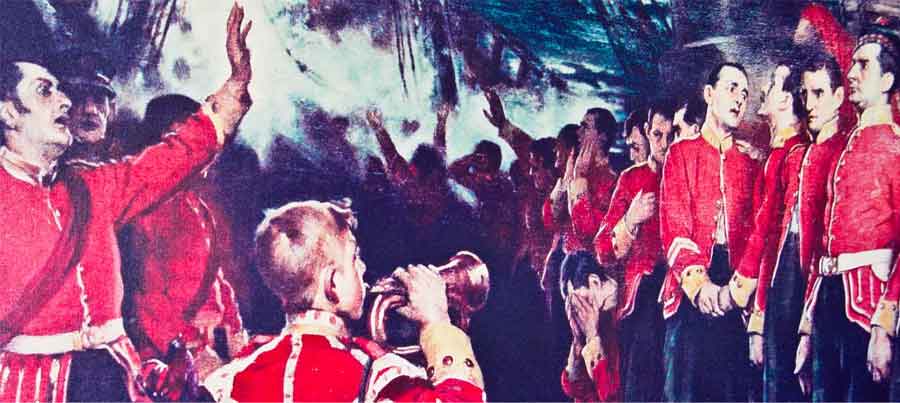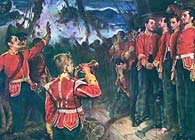Birkenhead Drill - Women and Children First
Lt. Col. Alexander Seton of the 74th Regiment of Foot realised that if the men rushed the lifeboats they would endanger the women and children by swamping their boat, so he ordered the men to stand fast. No one moved even though the ship was breaking up around them. As a result of the failure of the remaining lifeboats to launch, around 445 of the approximately 643 passengers perished, but because of the courage of the soldiers, all the women and children survived.
The sacrifice by the troops who stood fast on deck while the women and children were lowered into one of the only three available lifeboats was an act of unparalleled selflessness and courage. It was from this wreck that the standard "Birkenhead Drill" protocol of "women and children first" was incorporated into maritime moral code.
Kipling poem Soldier an' Sailor Too
The phrase apparently originates with the HMS Birkenhead disaster in 1852, and is mentioned in the Kipling poem Soldier an' Sailor Too:
…To take your chance in the thick of a rush, with firing all about,
Is nothing so bad when you've cover to 'and, an' leave an' likin' to shout;
But to stand an' be still to the Birken'ead drill
is a damn tough bullet to chew,
An' they done it, the Jollies -- 'Er Majesty's Jollies --
soldier an' sailor too!
Their work was done when it 'adn't begun; they was younger nor me an' you;
Their choice it was plain between drownin' in 'eaps
an' bein' mopped by the screw,
So they stood an' was still to the Birken'ead drill,
soldier an' sailor too!
We're most of us liars, we're 'arf of us thieves,
an' the rest are as rank as can be,
But once in a while we can finish in style
(which I 'ope it won't 'appen to me)...
Call us and schedule your listing today! Contact Us
Copyright © 2025 Hermanus Online Magazine. Web Development by Jaydee media.


